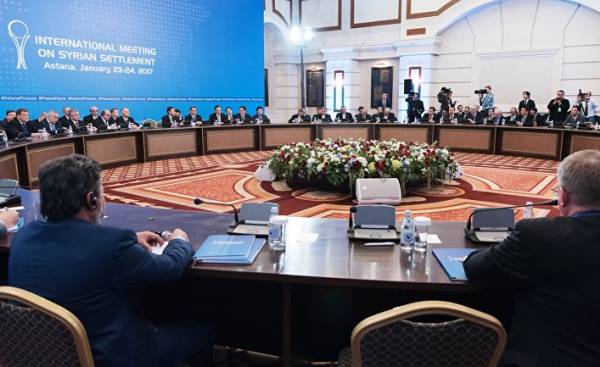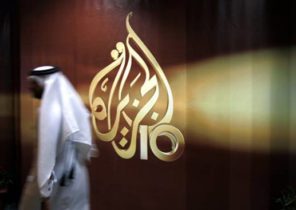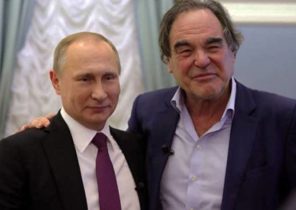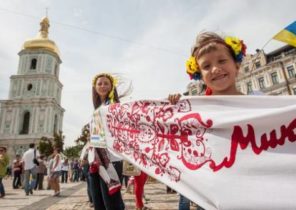
In mid-March passed the next round of Syrian talks in Astana. Many perceive this format as Moscow’s attempt to draw a blanket on itself, and to create an alternative held under the auspices of the UN negotiations in Geneva. However, Astana is not going to cancel Geneva; the main objective of the meetings in Astana — to create a platform for parties to the conflict in Syria to have the opportunity to discuss critical issues and small details and to go to the Geneva meeting ready for further discussion and compromise.
In Astana, representatives of the armed Syrian opposition and the government for the first time in many years, sat together in one room and listened to the opening speech to each other. For the first time during the war, the armed opposition groups that have real influence on the “battlefield” and to abide by the truce, were presented in Astana. In addition, the regional players — Turkey and Iran — whose forces are operating in Syria and have an impact on the course of the war, for the first time became the participants and sponsors of the new ceasefire agreement, reached on 29 December 2016, at the same time as his guarantors. Therefore, the talks in Astana has already contributed to creating more favourable atmosphere for negotiations in Geneva.
The Complexity Of Astana
Although this time the Syrian armed opposition has refused to participate in negotiations, all other participants were presented. In addition to the three countries — sponsors of the negotiations, the representatives of the Syrian government, the UN, Jordan and the United States also participated in the meeting. Many, and not without reason, say that without the opposition’s participation, these meetings are meaningless. It is not quite so.
Even without the opposition’s participation in the agenda of a huge number of issues that require discussion between other participants. Among them, the development and launch of monitoring mechanisms and penalties for violations of the truce, mapping the coordinates of terrorist groups and their separation from the opposition that joined the ceasefire regime, the Kurdish problem, coordination of joint actions in the fight against terrorists, etc.
Moreover, the accession negotiation process of Jordan shows that doors are open to all who want to contribute to the settlement of the situation in Syria. The fact that US officials are also involved in the talks suggests that Washington sees in the meetings in Astana the way to maintain a channel of communication to stay abreast of changes and initiatives on Syria, while the team of the Department of State is still not fully formed, and the administration trump busy with internal problems.
Turkey, being one of the guarantors acting in Syria the truce, is also a major sponsor of armed opposition groups. Therefore, Ankara is in a very comfortable position. It can use its influence on the opposition in discussions on the Kurdish problem. In this context, the absence of a delegation of the armed opposition in Astana can say that in the recent meeting in Moscow, Putin and Erdogan are unable to agree on the Syrian Kurds. And now Turkey is using its influence on the Syrian opposition to put pressure on Moscow. In the end, Ankara is acting essentially in a dual role — is itself and indirectly, the Syrian armed opposition. Therefore, the absence of the latter in the negotiations in Astana should not be perceived as a complete rejection of this format, but only as a tactical move, a temporary measure.
Why Astana is important?
All previous attempts of the US and Russia to conclude agreements on Syria or to enter a ceasefire failed. The most important reason is that neither the US nor Russia (to a lesser extent) did not have sufficient influence on the situation directly on the ground, and the regional players who have this effect (Turkey and Iran) was not part of the process.
In addition to the Military-space forces of Russia, military instructors in the Syrian army and the limited number of special forces, which basically ensures the safety of a military base Hamim, humanitarian operations, and of the reconciliation of the warring parties, Moscow does not have a sufficient number of its own ground forces in Syria. Moreover, it is not in Russia’s interests for several reasons. First, it is economically risky, as it increases the burden on the Russian budget. Second, is the risk of being drawn into a long conflict with all the consequences that may return in the memory of Russians unsuccessful Soviet experience in Afghanistan: to increase troops in Syria and tightening its presence may lead to increased discontent among the inhabitants of Russia.
In March 2018 in Russia’s presidential election. It is unlikely that the current leadership will risk his rating and political future, turning a risky ground operation in Syria. On the contrary, in the interests of Moscow as quickly as possible to stabilize the situation, or at least show voters positive results and success of the military campaign until the end of 2017. On this basis, it is possible to assume that Moscow will act quite flexibly.
As for the US, Washington is suffering with Syria since the conflict began in 2011. Financial support the moderate opposition, which eventually turned out to be radical, an infamous program of train-and-equip (train and equip) worth half a billion dollars, which failed, a gradual reduction of US involvement in the middle East, an unusual result of the presidential campaign that split the political world of the United States — none of this contributed to the resolution of the conflict in Syria and did not allow Washington to develop a sustainable strategy for the country. As a result of US in Syria — unlike in Iraq — have very little impact on the ground. The only group, which is now based in Washington, is the units of the Syrian Kurds. They are one of the few forces in Syria that are effectively fighting the Islamic state and “Dzhebhat EN-Nusra” (now “jabhat al Fatah ash-sham”). The US provides all their necessities, supplying weapons, money, military advisers, etc.
Overall, apart from the Syrian Kurds, only regional players with a sufficient number of troops in Syria can affect the situation. Among them are Iran and the Shiite militias it supports, including Hezbollah, the Turkish army and Sunni opposition groups, which it assists in Northern Syria, the official Syrian army, backed by Iran and Russia.
It is therefore quite logical that, having decided to unite Russia, Turkey and Iran could change. After all, they have enough influence in all parties fighting in Syria, and can make them abide by the agreements. All this creates more favorable conditions for ceasefire and resumption of political dialogue.
Problems of the Astana format
Despite its advantages, the format of the talks in Astana has its drawbacks. Although he has great potential, it lacks legitimacy in the eyes of the Arab street. All three countries that started this format are non-Arab. According to public opinion surveys conducted by the research company Zogby in 2016, the ratings of the positive perception of Turkey and Iran in the Arab world are falling. Moreover, a large majority in the Arab world considers Russia’s role in the region (including its role in Syria) is negative, although in fairness it should be noted that in Saudi Arabia and Egypt, of Russia’s ratings began to improve in recent years.
In this regard, the format and the initiatives launched by Russia, Turkey and Iran need the support of Arab countries, especially their cores, which now represent the Gulf countries led by Saudi Arabia. It is logical that if someone is trying to achieve resolution of the conflict in the Arab country, involving other Arab countries, to have their support is highly desirable. In the case of such support, the image and legitimacy of the countries, promoting the approach can be strengthened. Joining Riyadh to Astana format could balance and enhance legitimacy. However, such a scenario is unlikely, although completely eliminate it.
Therefore, it is important accession of Jordan to the negotiations in Astana. With 6 February representatives of Amman take part in all the meetings in the capital of Kazakhstan as an observer, but that does not make their participation less constructive. Jordan became the first Arab country who joined the talks in Astana and expressed support for the new format. Given the special relationship of Jordan with Saudi Arabia and its relations with the Council of the Commonwealth of the Arab States of the Gulf, Amman can play the role of unofficial representative of the Gulf in the process. In addition, Jordan became the mediator between the armed opposition groups in southern Syria and negotiators, which potentially extended the truce. Also, given the common border with Syria, Jordan can contribute to reducing tensions in the South of Syria if they control their border.
Anyway, initiatives launched by Russia, Turkey and Iran, contributed to the creation of new, additional platform for discussion, launch of a political process and the resumption of negotiations in Geneva. There is a big chance that other Arab countries may join the Astana process if it proves its effectiveness. And while much depends on the efforts of Moscow, Ankara and Tehran, their desire to influence their mentees and their ability to compromise. The next stage of the talks in Geneva will be a good test for this.







